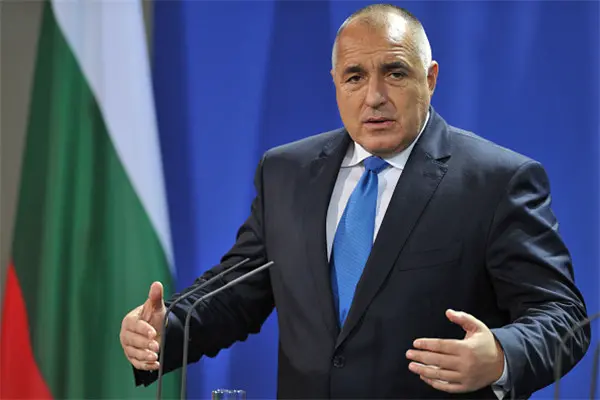After the ruling GERB party lost Bulgaria's presidential vote on Sunday and the prime minister resigned on Monday, the Balkan country is going to face unpredictable early parliamentary elections, analysts said.
With some 99 percent of ballots counted, General Rumen Radev, a candidate backed by the opposition Bulgarian Socialist Party (BSP), won 59.35 percent of the vote against 36.17 percent for the GERB party candidate Tsetska Tsacheva and 4.48 percent preferred the option "none of the above."
Bulgarian Prime Minister Boyko Borissov, who heads the GERB party, said on Sunday night that this meant there was a new political situation in the country, and submitted the resignation of his government to the National Assembly on Monday.
Meanwhile, he said that his party, which came to power in November 2014 in coalition with the Reformist Bloc, the Patriotic Front and ABV, definitely wanted early elections.
Korneliya Ninova, leader of BSP, the second largest party in parliament, said in turn that her party would not try to form a government within this National Assembly, also called for early parliamentary elections.
Ninova stressed that the leaders of all parliamentary parties have to be responsible statesmen, ensure law and order in Bulgaria, and not allow political instability.
A woman passes in front of posters of Bulgarian Socialists Party candidate Rumen Radev Sofia, Bulgaria, Thursday, Nov. 10, 2016, ahead of the presidential elections runoff on Sunday. Photo: AP
Earlier on Sunday, Bulgarian President Rosen Plevneliev, who will serve until Jan. 22, 2017, said "finding a sustainable governance formula within the current National Assembly depends only on the political parties and the executive branch of government."
"It is too early to form a caretaker government," Plevneliev said, adding that he was ready to hold consultations and a dialogue with everyone, including the newly-elected president, in order "to have stability and functioning institutions achieved in the state."
However, Nayden Zelenogorski, co-chairperson of the parliamentary group of the Reformist Bloc, said it was obvious that early parliamentary elections are coming, probably in March or April 2017.
Various political analysts agreed that early parliamentary elections in Bulgaria are inevitable, and it was not clear who would come to power as a result.
Ognyan Minchev said that the results of the presidential elections showed a serious crisis of confidence in GERB, but there is no clear alternative to the government.
Andrei Raichev held the opinion that the era of Borissov was over but GERB is the largest party in Bulgaria, and will probably have the biggest parliamentary group in the next National Assembly.
Kolyo Kolev, director of Mediana Polling Agency, said in an interview with Xinhua that "it's too early to predict what will happen after the elections, but the next government will most likely be a broad coalition without the participation of GERB."
It was also possible that a new political force would emerge, but this new force would hardly win the majority in the next parliament, Kolev said.
(APD)
 简体中文
简体中文

